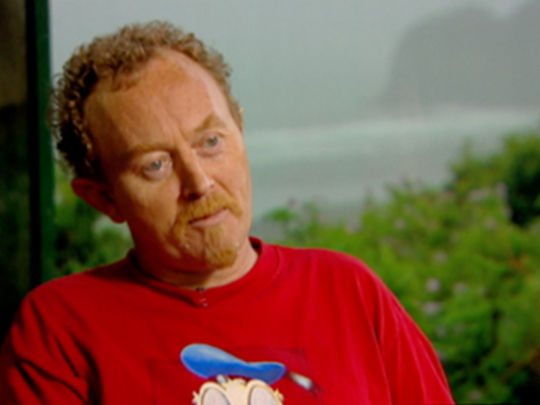
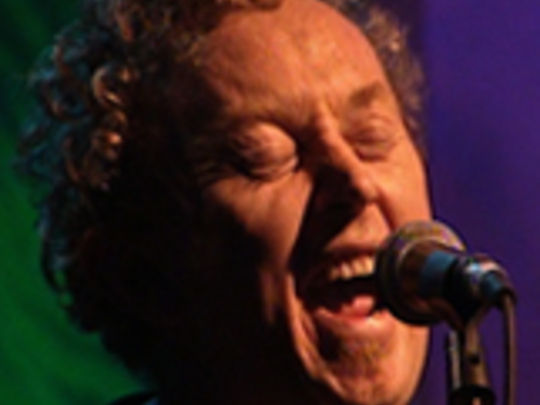
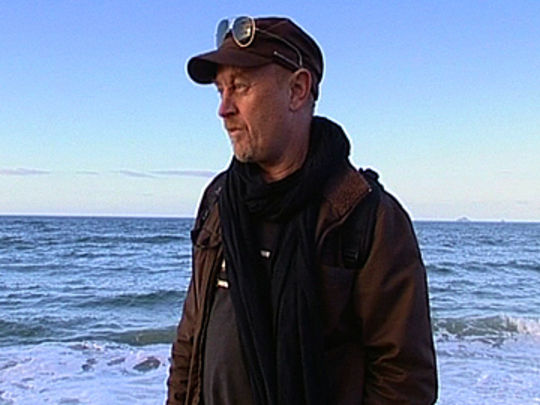
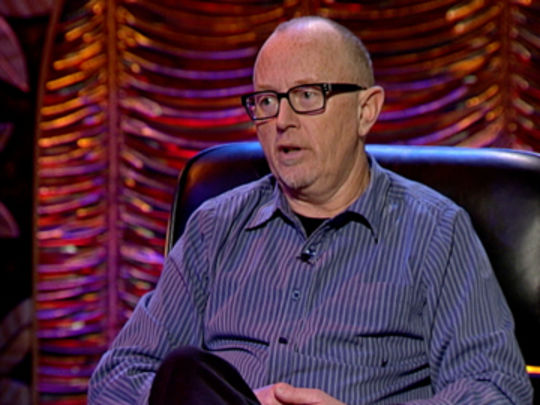
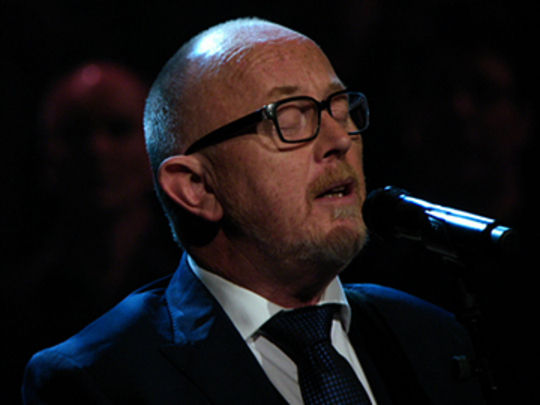
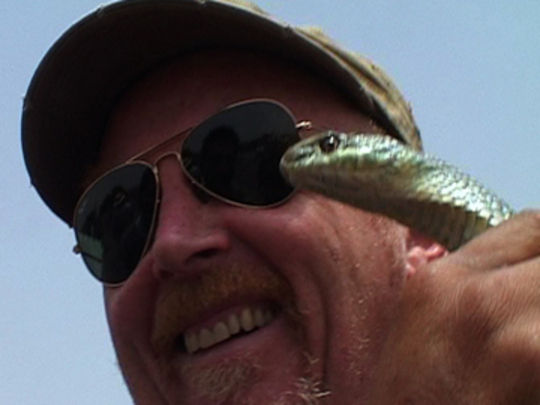
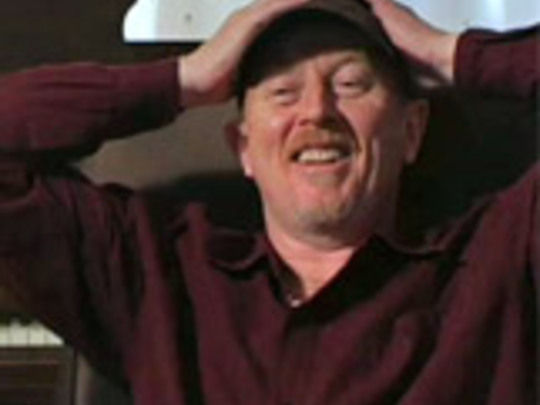
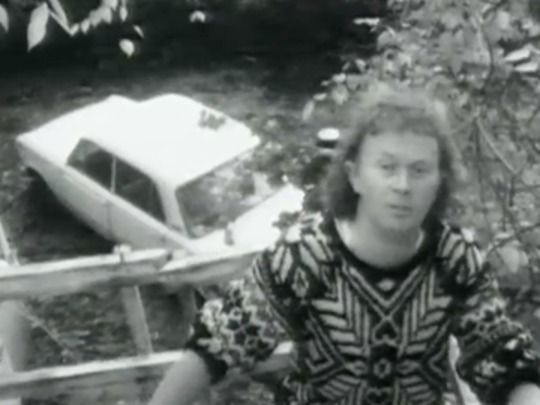
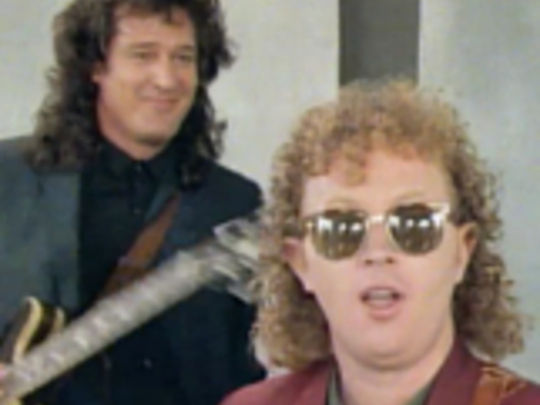
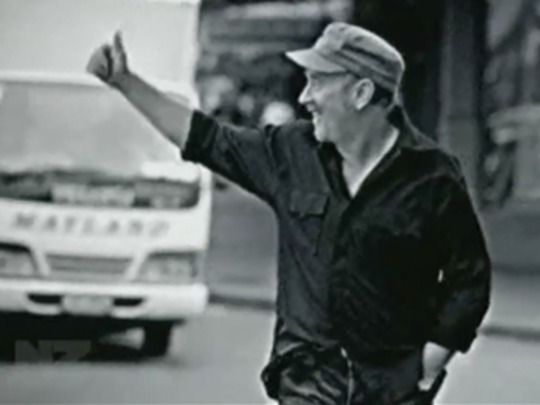
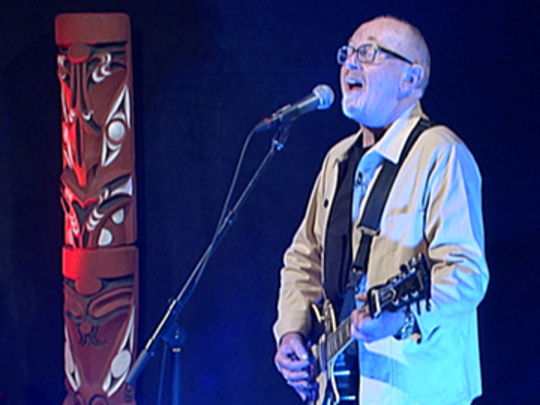
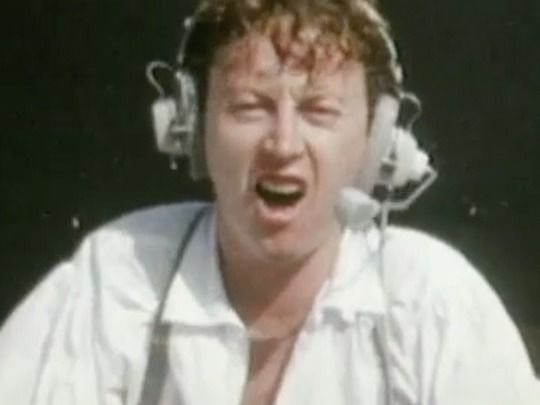
The Sir Dave Dobbyn Collection
The Sir Dave Dobbyn Collection
This collection has two backgrounds:
Let’s Get On with It, Love
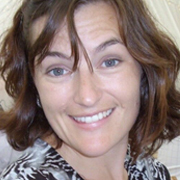
Gratitude and Light
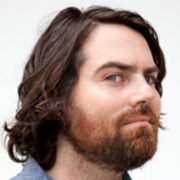
Let’s Get On with It, Love

By Gabe McDonnell 30 Apr 2021
In the late 1970s Sir Dave Dobbyn introduced himself to New Zealanders; a scrappy, curly-haired kid with aviator glasses pleading Be Mine Tonight. For Generation Xers he’ll always be the man on the cover of Shake magazine’s February 1988 issue: strawberry blonde mullet, distinctive elfin ears, loud shirt, bright suit jacket and a pair of Ray-Bans. That’s the Dave bopping around on 'Love You Like I Should', that’s the distracted Dave in smash hit 'Loyal' wearing the patterned jersey and watching his efficient partner pack up their house; a song about commitment, matched to a video about breaking up, that became a national anthem — unpack that, psychologists.
In the 1990s no O.E. was complete without hearing slurred promises to "keep it that waaay" on the last tube home. In an 2017 interview with The Spinoff, Dobbyn expresses gratitude for 'Loyal' and its place in the collective culture; but he also said this of its use in the failed 2003 Team NZ America’s Cup defence: "I learned a lot about commerce, patriotism and what was real and what was crap." Like any good songwriter Dobbyn protects his stance as an outsider: one foot in, one foot out, always ready for a getaway.
After more than 30 years of tapping into the national psyche, Dobbyn is trusted to express what we feel in hard times. The spur for his 2008 single 'Welcome Home' was witnessing an anti-racism rally in Christchurch and fighting the corner for asylum seeker Ahmed Zaoui. In 2018 he re-recorded it in te reo Māori ('Nau Mai Rā') and the song took on another mantle of significance. In 2014 The Wellington Orpheus Choir invited Dobbyn to compose a memorial song for the Pike 29. He met with the families and sweated over the task of conveying a personal and a national grief — a responsibility that "freaked" Dobbyn out. He premiered the composition, 'This Love', in May 2014, as seen in accompanying documentary Dreams Lie Deeper.
'Welcome Home' and 'This Love' are nakedly political songs, reminding Kiwis very pointedly about values we think we stand for; warmth, egalitarianism, and putting wrongs to right. In the 2017 Spinoff interview Dobbyn says he doesn’t know how he became New Zealand’s songwriter laureate, but in the same reply demonstrates why he is. "It’s sacred. Really sacred. That’s kind of familiar territory to me now…I love the work because it’s truly meaningful and you’re accountable in terms of the craft and your understanding of people and community."
When he was young he just wanted to rock out. He was a working class Irish Catholic boy from Glen Innes who befriended fellow music nuts Peter Urlich and Ian Morris at Sacred Heart College. They shared records, jokes and rock'n' roll dreams. On leaving school they formed Th' Dudes, starting off as a covers band before striking out with their own material. Like any introvert/extrovert, Dobbyn needed a mask to let loose. At his first Dudes gigs he played with his back to the audience but on his song 'Be Mine Tonight' — one of the most memorable guitar riffs in Kiwi pop — Dobbyn the party lover emerged front and centre. Th' Dudes were forged in the late 1970s/early 80s pub scene, and alcohol and substances played their part in his metamorphosis.
When Th' Dudes split Dobbyn found his next vehicle in DD Smash, relocating to Sydney in the early 1980s to try and crack the Australian market. His songwriting explored new tones, more soul, more brass. He delivered conversational hooks and horns in 'Outlook for Thursday' and invited us to a Rio style party on 'Magic (What She Do)'. Their final 1984 single 'Whaling' tapped into Dobbyn’s celtic melancholy and showcases his talent for having fireside chats with his audience. "I know it’s just bravado..." Dobbyn explores this theme time and time again. The video is a knockabout farce, Dobbyn the natural comedian playing all manner of shysters, all wanting a piece of DD Smash drummer Peter ‘Rooda’ Warren, the most Aussie-looking Kiwi man ever.
On 7 December 1984 the beloved DD Smash frontman said the wrong thing at the wrong time. A throwaway comment tapped into lingering tensions between young people and the police presence at the Thank God it’s Over end of year concert. As soon as the event was canned the audience was forced to exit the venue down Queen St, and rioting ensued. 'Tears, terror at the concert that made history' ran The NZ Herald. Dobbyn was charged with inciting a riot. In 1999 TV special Overnight Success Dobbyn remembers being "absolutely petrified" during his trial, "because the guy prosecuting was David Morris who’d put away Arthur Allan Thomas three times". Dobbyn spent "a fortune" on QC Peter Williams and was ultimately acquitted. The whole experience left Dobbyn feeling very cynical. "I think I was marginalised and made a scapegoat of sorts."
The opening bars of 'Slice of Heaven' rang in a new level of commercial success. Dobbyn incorporated the talents of reggae legends Herbs and the single topped charts on both sides of the Tasman. Its huge appeal and his platinum selling Footrot Flats soundtrack secured his place in Kiwi pop history. In 1988 he released solo album Loyal, featuring 'Slice of Heaven', top ten hit 'Love You Like I Should', and the iconic title song. The cover art was overtly Man Alone, but cheerful Man Alone — the mullet, the friendly eyes, the tussock and the sunlight. He’s frozen in time as our Kiwi Everyman.
In the new decade Dobbyn travelled to Los Angeles and soaked up the city’s nefarious vibes. 1993 solo album Lament for the Numb was never going to be Loyal number two, and Dobbyn pushed into darker lyrical territory. He returned to Auckland in 1993, sobered up and started work on Twist, his homecoming record produced by Neil Finn. The 1995 single 'Language' won him Best Songwriter of the Year. It’s another fireside chat, a song about trying to connect and failing, but being honest about the failure "I haven’t got a clue…" In the video, the late 1980s joshing around is long gone. His genius in naming national traits was on show again; in an alternative universe 'Language' would be played at cricket one-dayers, not 'Slice of Heaven'.
From the late 1990s to mid 2016, Dobbyn released six albums including a greatest hit collection, and added to his swag of songwriting awards. He’ll always be musically curious; for his 2008 album Anotherland he travelled to England and worked with dub reggae producers Adrian Sherwood and Skip Macdonald, while 2016 album Harmony House was a collaboration with The Phoenix Foundation's Samuel Scott and Luke Buda.
In April 2021 Dave Dobbyn became a 'Sir', knighted for his services to New Zealand music. He had a typically honest reaction. "I wasn’t exactly the golden boy. I’ve been a ratbag at times in my life like everyone else". Sir Dave Dobbyn has been a Christian for 22 years. In 2021 he sat down on Good Friday, a significant date in the Christian calendar, and did a Radio New Zealand interview where his steadfast faith was a central topic for discussion. In-between fighting his godly fight and pleading for more tolerance in an ever jumpy, judgemental world, his gleeful laugh rang out time and time again. The shy guy in aviator shades was still ready to rock.
- Writer and actor Gabe McDonnell studied English, Art History and Creative Writing at Victoria University. She has written for television (Freaky, The Strip), the stage (The Inept, Talent), print (Takahē), plus NZ On Screen and AudioCulture. In 2018 she was possessed by a demon on Wellington Paranormal.
Gratitude and Light
By Samuel Scott 30 Apr 2021
Tasked with writing about David Dobbyn, my mind leapt to my personal experiences. Somehow over the years he’s always been there, on the radio, on TV, and fleetingly, in person.
I met David a couple of times as a kid: my father co-wrote the screenplay for Footrot Flats: A Dog's Tale, for which David wrote the iconic 'Slice of Heaven' and 'Shouldn’t You Oughta Be in Love'. We crossed paths a few years later in Gisborne on New Years Eve, when I was just really getting into playing music in my high school band (a band that would morph into The Phoenix Foundation).
David was playing songs off the fantastic Neil Finn produced Twist. It was a loud, guitar heavy show, and spoke directly to my teenage interests. Afterwards he invited me and dad to watch Supergroove at a different club, and I got to pester him (at side of stage no less) about whether he liked the Pixies (he did). I started to have the delusional feeling that this was my own personal pop star. Ignorant to Th’ Dudes in their punk rock heyday, I imagined I was the only one who knew what a guitar-slinging rock machine this man was.
Regardless of my — let's be honest — name-droppy anecdotes, I find myself standing in a service station forecourt writing this article in my head, when 'Outlook For Thursday' starts blaring out of the tiny distorted outdoor speakers, and I realise David hasn’t been a presence in MY life...he is omni-present for everyone in this whole country. I was delusional then, I’m delusional now. That's the DD secret: the music transcends the artist, it becomes about the listener.
A little while later on the same day I’m scrolling through social media. There’s a photo of David at Government House receiving his knighthood, resplendent in a maroon suit. Further on is a picture of David and band on-stage at Eden Park, opening for Six60 in front of 50,000 people, the largest concert on this planet in over a year. And why not? His music is as integral to our identity as a nation as rugby. More so really, because some New Zealanders actually don’t give a damn about the "oval ball". I’m yet to meet anyone who doesn’t want to sing along with Herbs going “ba da da” on 'Slice Of Heaven'.
David’s music unites the regional bogan, the dairy farming elites, the urban hipsters. Integral to this is a man who deeply understands and is influenced heavily by the art rock and punk attitude of the 1970s, but is also wide open to the world — uncynical, unafraid to reach out and connect. I mean, how many knights of the realm have been accused of inciting a riot, and had a huge hit song gently lambasting the government for their treatment of a Muslim immigrant?
Fear of immigration and rampant xenophobia have come to define the last decade of global politics, dividing the left and right in a vicious downward spiral. Obviously New Zealand isn’t immune from such debates, but somewhere in the back of all our minds 'Welcome Home' is playing; I personally believe this song is responsible for humanising a topic that is so often a political football.
What a song. What a sensible and caring song. One that is rooted in a respect for humanity, and a spiritual yearning to connect and be of service. I am the least religious man you’ll meet. My grandparents weren’t churchgoers, let alone my parents. In my liberal bubble we are sceptical, even scared of anyone who is openly religious, especially Christian. David showed me how stupid this was by never questioning the lack of faith in those around him, whilst never neglecting his own truth. We can all love each other and feed off the different forms of love and spirituality that consume us. Whether you are grateful to a higher power or grateful to the random outcomes of a chaotic universe, the important thing is to be grateful and share that gratitude.
The gratitude and light flows through 'Loyal', 'Just Add Water' , 'Magic What She Do' and so many other songs of love and family, but they are always in balance with a darkness that burns underneath.
I got to know David in a very different way working together many years later. Honestly, he is as nice and generous an individual as you’d imagine from his public persona. Together with Luke Buda, we made a record (Harmony House), we watched rugby, we talked endlessly about microphones and Brian Eno. He made me 289 cups of tea.
'Submarine Blue' is one of the best songs I've ever had the pleasure of working on. The song starts: "deeply asleep in a bathysphere, diving way deeper than down, from the pit I have soared in your atmosphere, in the dazzling dark I was found". It’s a crushingly real account of despair and darkness. But are also just really cool sounding lyrics. These are not the songs of a simple, sycophantic songman. These are works of light and shade, little spells infused by the mysterious ingredients that constitute great rock and roll, brewed up like a perfect cup of tea by one of our absolute best.
David is not in any way done; I believe he’ll give us many more fine records — joyous pop songs, dark works of poetic art-rock, and soul quenching love songs. The best of these songs will be deeply personal to him, but I’ll assume they are deeply personal to me, and the rest of the country will think they are deeply personal to them. And that’s the way it should be.
- Samuel Scott and his Phoenix Foundation bandmate Luke Buda produced Dave Dobbyn's 2016 album Harmony House. Aside from seven albums with The Phoenix Foundation, Scott has also released three solo albums, and worked on the soundtracks for Boy, Hunt for the Wilderpeople and TV series The Gulf.